ADDICTION
ALCOHOL DEPENDENCE
QUIT SMOKING
ALLERGY
ANTI FUNGAL
FUNGAL INFECTION
FUNGAL NAIL INFECTIONS
ANTI-REJECTION DRUGS
ANTI WORM
ANTIBIOTIC
BACTERIAL INFECTIONS
ARTHRITIS
GOUT
OSTEOARTHRITIS
RHEUMATOID ARTHRITIS
BLOOD
LOW PLATELET COUNT
THROMBOPHLEBITIS
VARICOSE VEINS
COLON
ANAL FISSURE
PILES
ULCERATIVE COLITIS
DIABETES CARE
DIABETES INSIPIDUS
DIABETES TYPE
DIABETIC FOOT ULCERS
GLUCOSE MONITOR
EYES/EAR CARE
DRY EYES
EYE CARE
EYE EXAMINATION
EYE INFECTION
EYE LASHES
EYE PAIN
GLAUCOMA
OCULAR HYPERTENSION
UVEITIS
FEVER CARE
MALARIA
RHEUMATIC FEVER
TYPHOID FEVER
GASTROINTESTINAL
ACIDITY
CONSTIPATION
CROHN'S DISEASE
DIARRHOEA
GALLBLADDER STONES
INTESTINAL ULCERS
IRRITABLE BOWEL SYNDROME
MOTION SICKNESS
NAUSEA
Tretinoin 0.1% Cream (Tretinoin)
| Active Ingredient (Generic Name): | Tretinoin |
|---|---|
| Indication: | Acne |
| Manufacturer: | Healing Pharma, India |
| Packaging: | 20 gm in one tube |
From: $56.00
Tretinoin 0.1% cream, containing tretinoin, treats acne, improves skin, unclogs pores, and sheds dead skin. Use nightly, avoiding eyes and mouth. Wash hands before. Apply sunscreen in the day. Test skin sensitivity. For irritation, stop use. Follow instructions. Maintain balanced diet, hydrate, and avoid excess alcohol. Common effects are mild stinging and warmth. Seek help for severe symptoms. For overdose, seek immediate aid. Avoid sun exposure. Consult professionals about medications and pregnancy. Use cautiously around sensitive areas. Secure from authorized sellers. Benefits include skin improvement. Apply on dry skin, avoid sensitive areas, and sun exposure. Side effects may include dryness and irritation. Exercise precautions with other products, waxing, dryness, and sun exposure. Consult healthcare providers for questions or concerns. Additional details available.
To begin exploring this topic, consider the fundamental aspects that will guide your understanding. Tretinoin 0.1% cream, also known as Retin-A, is a topical medication commonly used to treat acne and improve the appearance of the skin. This medication works by increasing cell turnover and promoting the exfoliation of dead skin cells, which helps unclog pores and prevent new acne breakouts. Additionally, tretinoin can also reduce the formation of comedones, or blackheads and whiteheads, and improve overall skin texture.
When using tretinoin 0.1% cream, it is essential to follow your healthcare provider’s instructions carefully. Apply a thin layer of the cream to clean, dry skin once daily, usually in the evening. Avoid applying the medication near the eyes, mouth, and other mucous membranes, as it may cause irritation. It is normal to experience some skin dryness, redness, and peeling when starting tretinoin treatment, but these side effects typically improve with continued use. Remember to wear sunscreen during the day, as tretinoin can increase skin sensitivity to sunlight. If you have any concerns or questions about using tretinoin 0.1% cream, consult your healthcare provider for personalized guidance.
Why is this medication prescribed?
Tretinoin 0.1% cream is prescribed by healthcare providers to treat acne and improve skin appearance. Acne, a common skin condition, occurs when hair follicles become clogged with oil and dead skin cells. Tretinoin, a form of vitamin A, works by unclogging pores and promoting the shedding of dead skin cells. This helps to prevent new acne breakouts and allows existing pimples to heal more quickly. Additionally, tretinoin can improve skin texture and reduce the appearance of fine lines and wrinkles.
Healthcare providers may recommend tretinoin cream to individuals dealing with moderate to severe acne that hasn’t responded well to other treatments. It is often used as part of a thorough skincare routine that includes gentle cleansing and moisturizing. Tretinoin should be applied as directed by your healthcare provider, typically once daily in the evening. It is important to follow your healthcare provider’s instructions carefully to achieve the best results and minimize potential side effects.
How should this medicine be used?
When using this medication, follow the directions provided by your healthcare provider for best results. Tretinoin 0.1% cream is typically applied once daily before bedtime to clean, dry skin. It is important to avoid applying the cream near the eyes, mouth, and mucous membranes. Before applying the cream, wash your hands thoroughly. Use a pea-sized amount of the cream and gently massage it into the affected areas. Avoid applying it to sunburned, windburned, dry, chapped, irritated, or broken skin.
It is essential to use sunscreen and wear protective clothing when exposed to sunlight while using tretinoin cream, as it can increase your skin’s sensitivity to sunlight. Do not use tretinoin cream on sunburned skin. It may take several weeks to see the full effects of tretinoin cream, so be patient and consistent with your application. If you experience severe irritation, redness, or peeling of the skin, consult your healthcare provider.
Other uses for this medicine
If you have any questions about other potential uses for Tretinoin 0.1% cream, consult your healthcare provider for guidance. While Tretinoin is primarily prescribed for acne treatment, it may also be used to improve the appearance of fine wrinkles and rough skin. Some individuals use Tretinoin to address hyperpigmentation concerns, such as dark spots or melasma. Additionally, dermatologists may recommend Tretinoin for managing certain types of acne scars, although results can vary.
In some cases, Tretinoin has been used off-label for conditions like psoriasis and certain types of skin cancer, although this should only be done under the supervision of a healthcare professional. Moreover, Tretinoin has shown potential for treating sun-damaged skin and promoting an overall smoother skin texture. It is essential to use Tretinoin only as directed by your healthcare provider, as improper use can lead to skin irritation and other adverse effects. Always follow your healthcare provider’s instructions carefully and discuss any concerns or potential alternative uses with them to guarantee safe and effective treatment.
What special precautions should I follow?
Before using Tretinoin 0.1% Cream, it’s important to check your skin sensitivity. Start by applying a small amount to a small area to test for any adverse reactions. If irritation occurs, discontinue use and consult with your healthcare provider for further guidance.
Check Skin Sensitivity First
In order to guarantee safe use and minimize adverse reactions, always conduct a skin sensitivity test before applying Tretinoin 0.1% Cream.
- Wash and dry a small area of skin where you plan to apply the cream.
- Apply a small amount of Tretinoin 0.1% Cream to the area and wait for 24 hours.
- If no redness, itching, or irritation occurs during this period, it’s likely safe to use the cream more broadly. If any adverse reactions appear, discontinue use and consult a healthcare professional for further guidance.
What special dietary instructions should I follow?
To optimize the effectiveness of Tretinoin 0.1% Cream, it is advisable to maintain a consistent and balanced diet. While there are no specific dietary restrictions associated with using Tretinoin cream, consuming a healthy diet rich in fruits, vegetables, whole grains, and lean proteins can support overall skin health. Including foods high in vitamins A, C, and E may also be beneficial, as these vitamins are essential for skin repair and maintenance.
Moreover, staying hydrated by drinking an adequate amount of water each day is important to keep your skin hydrated from within. Avoiding excessive consumption of alcohol and foods high in sugar and unhealthy fats can also contribute to better skin health.
Incorporating omega-3 fatty acids found in sources like salmon, walnuts, and flaxseeds into your diet may help reduce inflammation and promote skin elasticity. Remember, a well-rounded diet not only benefits your skin but also supports your overall health and well-being.
What should I do if I forget a dose?
If you forget a dose of Tretinoin 0.1% Cream, simply apply it as soon as you remember, unless it is almost time for your next scheduled application. In the case that it is nearing the time for your next dose, skip the missed one and continue with your regular dosing schedule. It is essential not to apply extra cream to make up for the missed dose as this can lead to irritation or other unwanted effects. Consistency in the application of Tretinoin is vital for best results. Try to establish a routine that helps you remember to apply the cream regularly. Setting a daily reminder on your phone or associating the application with another daily activity can be helpful strategies. If you have any concerns or questions about missed doses or proper application, do not hesitate to consult your healthcare provider for guidance. Remember that following the recommended dosing schedule is important for the effectiveness of the medication.
What side effects can this medication cause?
Tretinoin 0.1% Cream may cause some side effects that could be serious. Monitor for any persistent adverse reactions and contact your doctor immediately if you experience symptoms such as severe skin irritation, blistering, or swelling. It’s important to be mindful of these potential side effects to guarantee your safety while using this medication.
Monitor for Persistent Adverse Reactions
Monitor for signs of skin irritation, peeling, or redness when using Tretinoin 0.1% Cream.
- Common Side Effects: These may include mild stinging, warmth, or burning sensation upon application.
- Expected Reactions: Initial worsening of acne before improvement is common, but consult your healthcare provider if severe irritation occurs.
- Sun Sensitivity: Tretinoin can heighten skin sensitivity to sunlight; make sure to use sunscreen and protective clothing to avoid sunburn.
Some side effects can be serious. If you experience any of the following symptoms, call your doctor immediately:
Be watchful for any signs of serious side effects that may arise while using this medication. If you experience any of the following symptoms, call your doctor immediately:
- Severe skin irritation, such as excessive redness, swelling, blistering, or crusting.
- Development of a rash, itching, or hives that are widespread or persistent.
- Difficulty breathing, tightness in the chest, or swelling of the face, lips, or tongue.
These symptoms could indicate a severe allergic reaction or other serious side effects that require immediate medical attention. It’s essential to seek prompt assistance if you encounter any of these reactions while using Tretinoin 0.1% Cream to safeguard your safety and well-being.
What should I know about the storage and disposal of this medication?
When storing and disposing of this medication, it is crucial to follow specific guidelines to guarantee its effectiveness and safety. Tretinoin 0.1% Cream should be kept at room temperature, away from moisture and heat. Avoid freezing the cream. Keep it out of reach of children and pets. Make sure the container is tightly closed when not in use.
When it comes to disposal, do not flush tretinoin cream down the toilet or pour it into a drain unless instructed to do so. Proper disposal helps prevent harm to the environment. Consult your pharmacist or local waste disposal company about the best way to dispose of the medication. They can provide guidance on the appropriate disposal methods in your area.
If you have any expired or unused tretinoin cream, dispose of it properly. Check the expiration date before using the medication. Do not keep expired medications as they may not be effective and could potentially be harmful. Following these storage and disposal guidelines will help guarantee the safety and effectiveness of your tretinoin 0.1% cream.
In case of an emergency/overdose
In the event of an emergency or overdose involving Tretinoin 0.1% Cream, seek immediate medical assistance. Accidental ingestion or excessive topical application of Tretinoin can lead to serious side effects and should not be taken lightly. If you suspect an overdose, contact your local poison control center or go to the nearest emergency room promptly.
Symptoms of an overdose may include severe skin irritation, redness, peeling, or discomfort. It is important to provide healthcare professionals with accurate information about the amount of Tretinoin used and the timing of ingestion or application. Do not attempt to induce vomiting unless instructed by healthcare providers.
In case of accidental eye contact, rinse thoroughly with water and seek medical advice. Avoid applying Tretinoin on damaged or sunburned skin to prevent further irritation. Keep Tretinoin out of reach of children and pets to avoid accidental ingestion. Taking immediate action in the event of an emergency or overdose is essential for ensuring your safety and well-being.
What other information should I know?
If you are using Tretinoin 0.1% Cream, there are some important additional details you should be aware of. It is vital to avoid exposure to sunlight or artificial UV rays, such as sunlamps or tanning beds, as Tretinoin can increase your skin’s sensitivity to these sources, leading to sunburns. Remember to use sunscreen and wear protective clothing when outdoors. Inform your healthcare provider about any other medications, especially those containing sulfur, resorcinol, or salicylic acid, as they may interact with Tretinoin. Additionally, if you are pregnant or planning to become pregnant, consult your doctor before using Tretinoin, as its effects on unborn babies are not yet fully known. Be cautious while using Tretinoin on sensitive areas like the lips or near the eyes, as it may cause irritation. Always follow the instructions provided by your healthcare provider and use the cream as directed for the best results. If you have any concerns or experience severe side effects, seek medical advice promptly.
Brand names
Discover popular brand names for Tretinoin 0.1% Cream to help you recognize this medication in the market. Tretinoin 0.1% Cream is available under different brand names depending on the manufacturer. Here are some common brand names you might encounter when searching for this medication:
| Brand Name | Manufacturer | Active Ingredient |
|---|---|---|
| Retin-A | Janssen Pharmaceuticals | Tretinoin |
| Refissa | Ortho Dermatologics | Tretinoin |
| Atralin | Coria Laboratories | Tretinoin |
| Avita | Mylan Pharmaceuticals | Tretinoin |
| Tretin-X | Promius Pharma | Tretinoin |
These brand names may be used interchangeably with Tretinoin 0.1% Cream, as they contain the same active ingredient at the same concentration. When purchasing this medication, make sure that you are buying from authorized pharmacies to guarantee the quality and authenticity of the product.
Purchase From Authorized Pharmacies
To guarantee the authenticity and quality of Tretinoin 0.1% Cream, it is advisable to purchase this medication only from authorized pharmacies. Authorized pharmacies are licensed establishments that adhere to strict regulations set by health authorities. When you buy Tretinoin 0.1% Cream from authorized pharmacies, you can trust that you are receiving a genuine product that meets quality standards.
Purchasing from authorized pharmacies also ensures that you are getting the correct strength and formulation of Tretinoin 0.1% Cream as prescribed by your healthcare provider. These pharmacies source their medications directly from reputable manufacturers, reducing the risk of counterfeit or substandard products.
Moreover, buying from authorized pharmacies allows you to benefit from the expertise of trained pharmacists who can provide valuable information about the proper use, storage, and potential side effects of Tretinoin 0.1% Cream. They can also offer guidance on how to optimize the effectiveness of the medication while minimizing any adverse reactions. Ultimately, purchasing Tretinoin 0.1% Cream from authorized pharmacies prioritizes your safety and ensures that you are receiving a reliable product for your skincare needs.
To summarise
For a clear overview, let’s summarize the key points discussed. Tretinoin 0.1% cream, a topical medication, is commonly used to treat acne and improve skin texture. It works by promoting skin cell turnover and preventing the formation of new acne lesions. When applying tretinoin, it is essential to cleanse the skin thoroughly and wait for it to dry before gently applying a pea-sized amount to the affected areas. It is vital to avoid sensitive areas like the eyes, lips, and any irritated or broken skin. Tretinoin may cause skin irritation, dryness, redness, or peeling, especially during the initial weeks of use. It is important to use sunscreen during the day when using tretinoin, as it can increase skin sensitivity to the sun. Patients should follow their healthcare provider’s instructions carefully and be patient, as it may take several weeks to see noticeable improvements in skin condition. Consulting a healthcare professional before starting tretinoin is recommended to ensure safe and effective use.


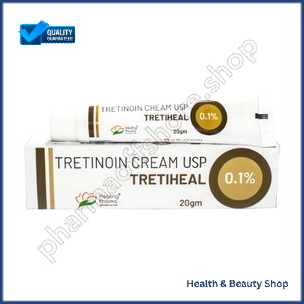
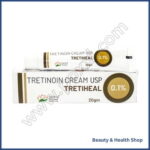
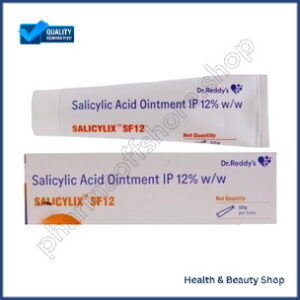
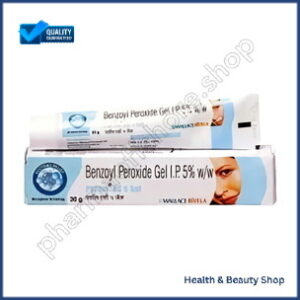
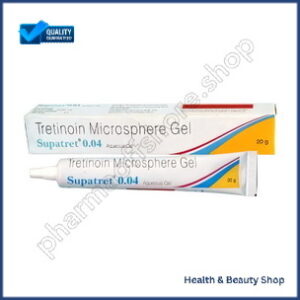
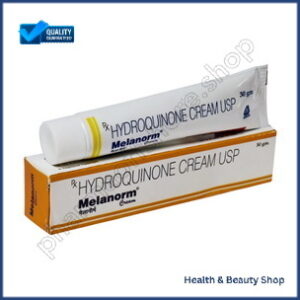
There are no reviews yet.